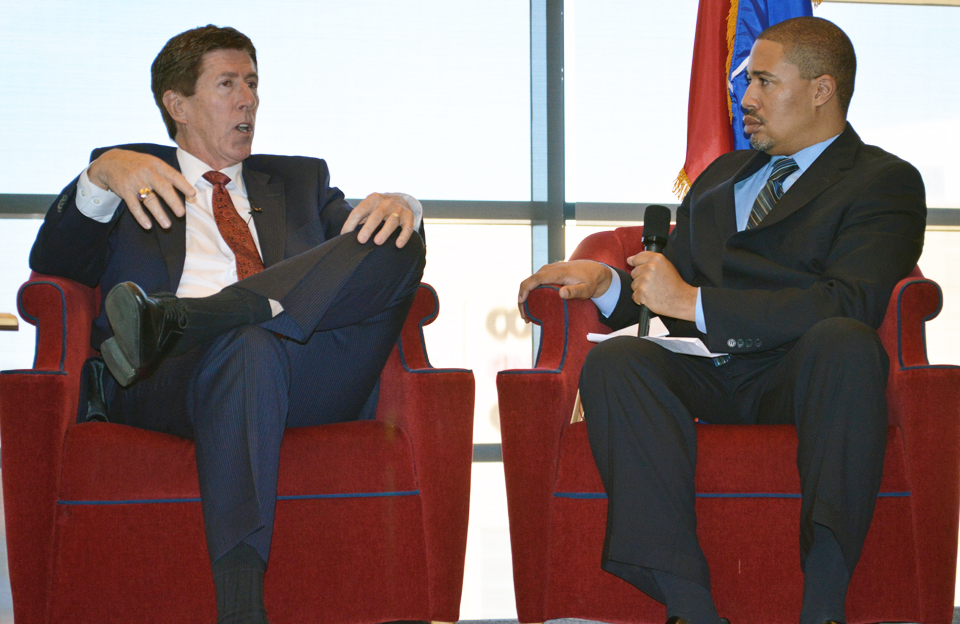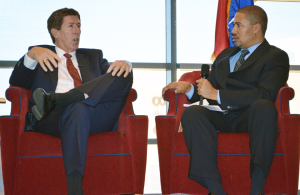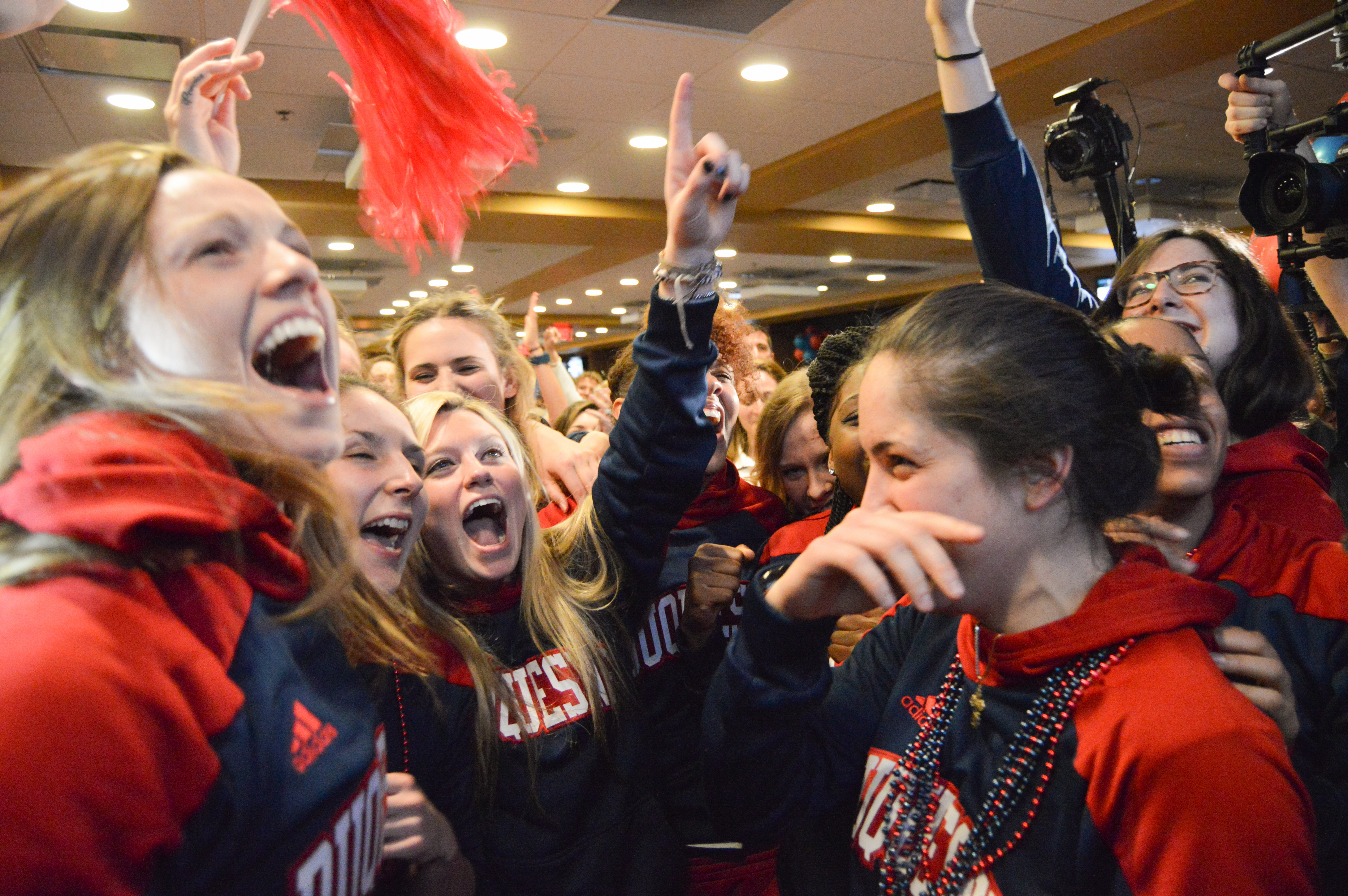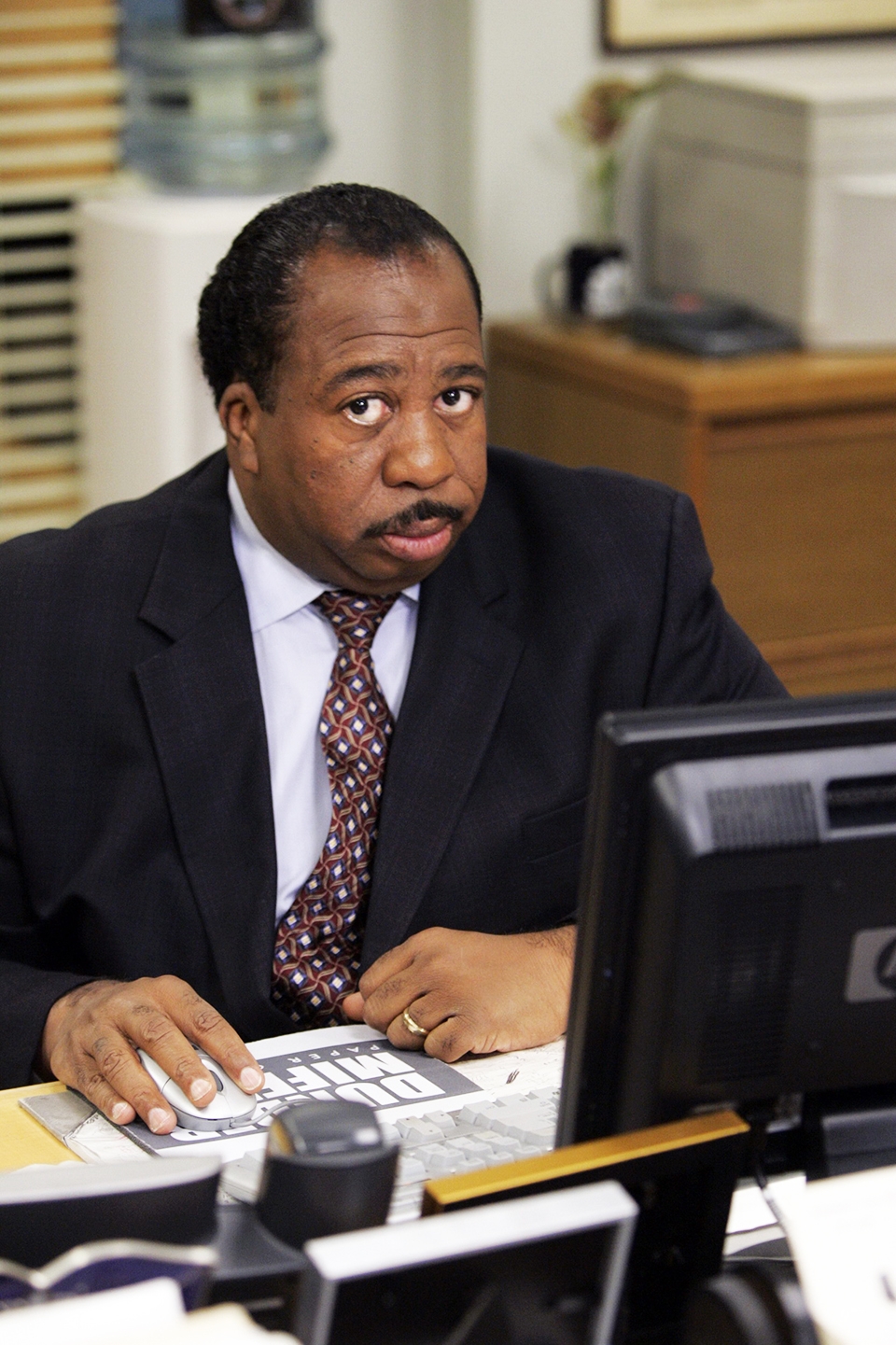

By Jen Cardone | The Duquesne Duke
The defense attorney for George Zimmerman spoke on a panel Monday at the Power Center Ballroom about media coverage in high-profile criminal cases and what can be done to eliminate over-prosecution of Americans of different races.
Attorney Mark O’Mara said media outlets were focused on boosting their ratings during the Zimmerman trial in 2013. Zimmerman, who shot and killed unarmed black teenager Trayvon Martin in 2012, was acquitted last July on charges of second-degree murder and manslaughter.
O’Mara said the media seeks details that are leaked and uses them as breaking news, often times having nothing to do with what actually happened in the case.
“If I could keep media separate, I would,” O’Mara said. “They are a necessary evil that we can’t get around.”
Shawn Vincent, communications director of the O’Mara Law Group, pointed to NBC as an example of a media outlet twisting information. The station edited Martin’s 911 call to make it sound like Zimmerman racially profiled Martin, according to Vincent.
After the incident, O’Mara and Vincent pledged not to talk about certain facts of the case with the media. Instead, they chose to educate them on the facts that they did present to them.
Vincent said they essentially spent 60 percent of their time educating the media to help them report more accurate information.
“The first 45 days of the case would have gone differently if someone could have told [the media] they were wrong,” Vincent said.
O’Mara and Vincent were the first defense attorneys to start a Facebook and Twitter campaign to help balance the media who made Zimmerman look guilty because he was a white man who shot a black teenager.
“If we didn’t balance [the media], there would be no way to undo what the media had already said,” O’Mara said. “The landscape was already affected.”
After the verdict, O’Mara launched Justice Outreach, a non-profit organization that focuses on over-prosecution of Americans based on race.
The program focuses on breaking habits of misbehavior from African Americans in the juvenile justice system, because if it doesn’t start when they are young, they will carry the behavior to the adult system.
O’Mara said community policing would be beneficial to society. Community policing is an intentional effort by law enforcement to get out of their cars and onto the street to interact with citizens.
He said more community involvement by the police force would decrease unnecessary shootings, especially if cops are involved in the everyday lives of kids. He stressed the importance of forming a good relationship to avoid incidents like the Martin shooting.
“When cops and kids interact in the community, it forces a relationship that does seem to continue. If there was some way to train the cop to not have a chip on his shoulder and to interact with the kid, you can break the potential for arrest and for respect for a relationship,” O’Mara said.
O’Mara said he was shocked by how emotionally the black community reacted to the case and verdict.
“I actually spent time trying to make sense of that to figure out how I misjudged so badly what happened, because in my mind it happened the way it should happen,” O’Mara said. “The trial was had, the verdict was had, and we’re done. It was so much deeper than one verdict.”



